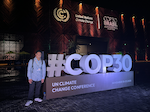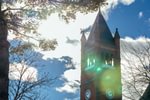
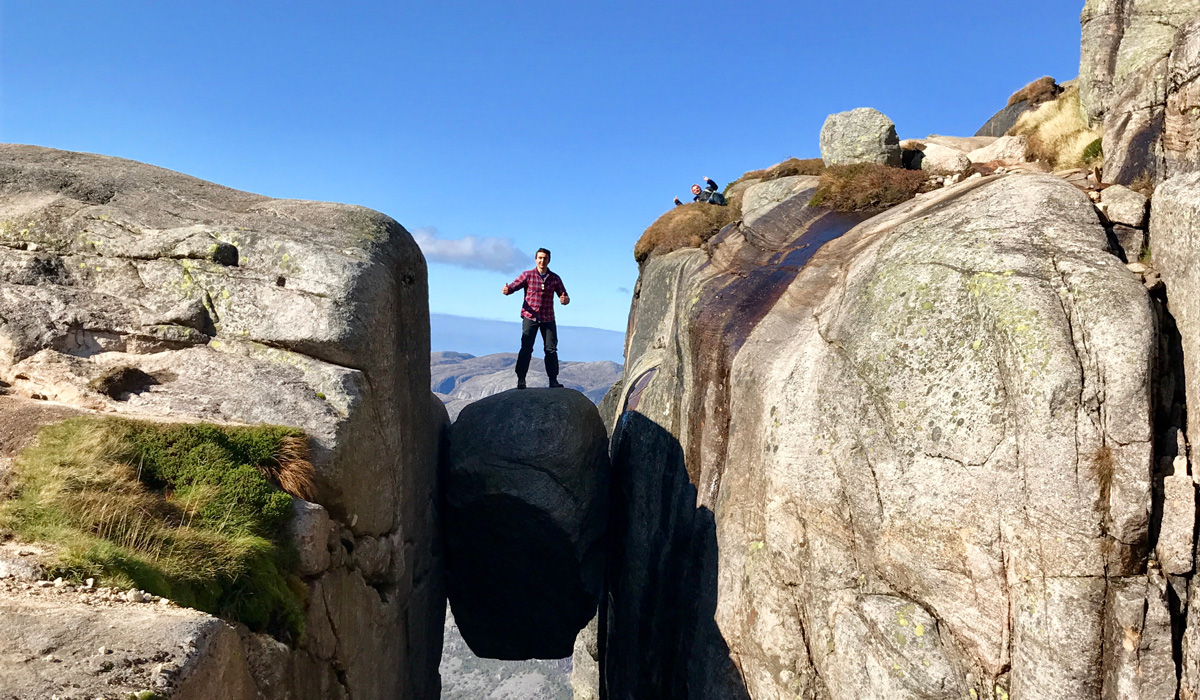
Colin Hetherington ’19 always knew he wanted to work in medicine.
However, it was a personal experience he had battling cancer during his senior year, and an externship he completed in healthcare shortly thereafter, that helped him realize the impact he could have, as well as his capacity to connect with patients.
“I was worried that I didn’t have enough time to process my own health circumstances, and it made me question if medicine was going to be too personal for me,” Hetherington said of his externship organized through the Center for Career Engagement at the University of Vermont Medical Center with Oncologist, Dr. Marc Greenblatt P’19.
His last round of chemotherapy had ended only two months earlier, and as a result of the medical leave he needed to take in the middle of his senior year, he was faced with graduating a semester later than he had originally planned.
“I will never forget at the end of this externship, I was talking with a young patient who was at the clinic receiving chemotherapy. When I admitted my own past, she got really emotional because she thought she was the only person her age afflicted by this. My experience in sharing she wasn’t alone helped me realize that while my past may accentuate some emotional traumas for me, it would ultimately help me better empathize, too.”
Finding a community of active learners
Before he even applied to Gettysburg, Hetherington had known of the College’s academic reputation. As he narrowed his focus to liberal arts and science institutions with small class sizes and an active, engaged community, he kept the College on his list.
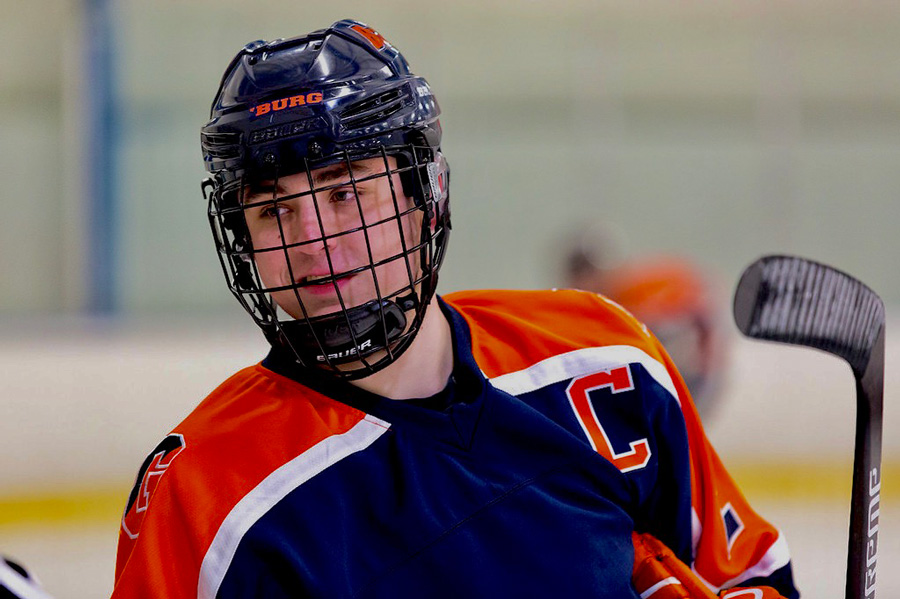
It was a conversation with Admissions tour guide Bobby Novak ’15 while visiting campus that convinced Hetherington Gettysburg College was the place for him.
“It’s crazy to think that a history major convinced me that Gettysburg was the right place to study the sciences, but he really did,” Hetherington explained. “He was so knowledgeable about the science programs, but it was a story he told about his study abroad experience that sealed the deal for me.”
Novak shared that it was his abroad experience, organized through Gettysburg, that provided him with the unique opportunity to go behind the scenes at the Royal Armory Museum in Leeds and see their collection beyond what was on display.
“I remember seeing how enthused he was by this experience and thinking how impactful it must have been to him as a history major. If he could do this in his own field, I could only imagine what opportunities Gettysburg would provide me with.”
An unexpected setback
Hetherington took a First-Year Seminar on Complementary Medicine and quickly got involved in campus activities. He joined the club ice hockey team and became an assistant captain as a first-year. He declared a health sciences major and neuroscience minor, participated in the Garthwait Leadership Center’s Leadership Certificate Program, and studied abroad in Copenhagen, Denmark during his junior year. He was also a member of the Sigma Chi fraternity and joined the EMT club his senior year.
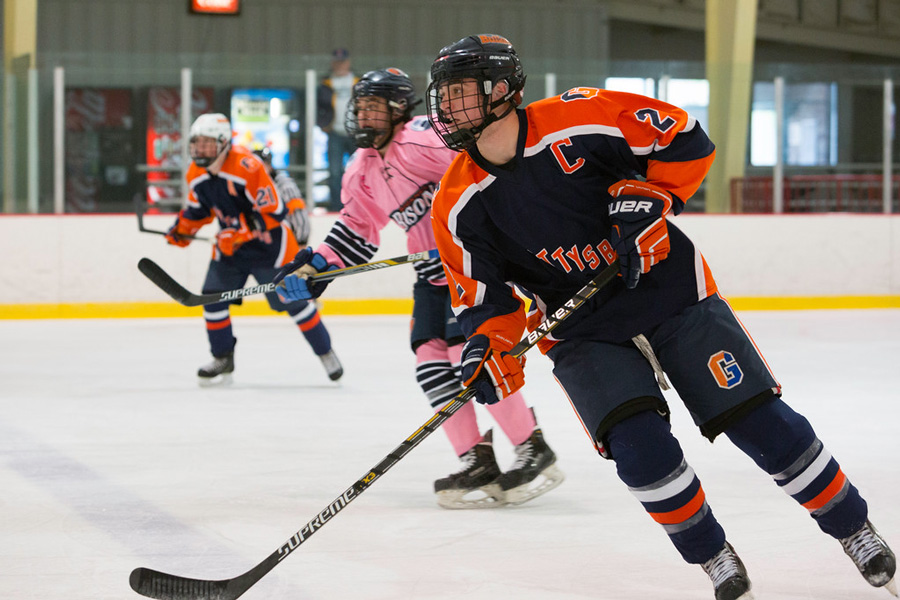
It was towards the middle of his senior fall semester that he was diagnosed with cancer. While he was able to finish out the semester after receiving a surgery and recovering at home, he realized afterwards that his case was a bit more serious than he originally thought. The experience presented its own challenges and required him to take a medical leave of absence that spring, but Hetherington was surprised by what he learned from it.
“In the absence of education, academic rigor and personal advancement, I was lost,” Hetherington recalled. “I hadn’t realized Gettysburg helped me find an inquisitiveness in myself and an avenue through which to challenge myself that I was taking for granted.
“Having the ability to return to Gettysburg College with a newfound sense of appreciation, I was able to truly enjoy the courses I took, the broadening of my perspectives, and the challenges it asked of me.”
Through chemotherapy and other treatments during his medical leave, Hetherington was able to recover, and returned to campus to complete his education. Amongst the activities he was looking forward to dedicating himself to: an independent study with Biology Prof. Matt Kittleberger on epilepsy, and his work with Adams Regional Emergency Medical Service through the College’s EMT club.
To Hetherington, the totality of his experience at Gettysburg has made his current work feel inevitable.
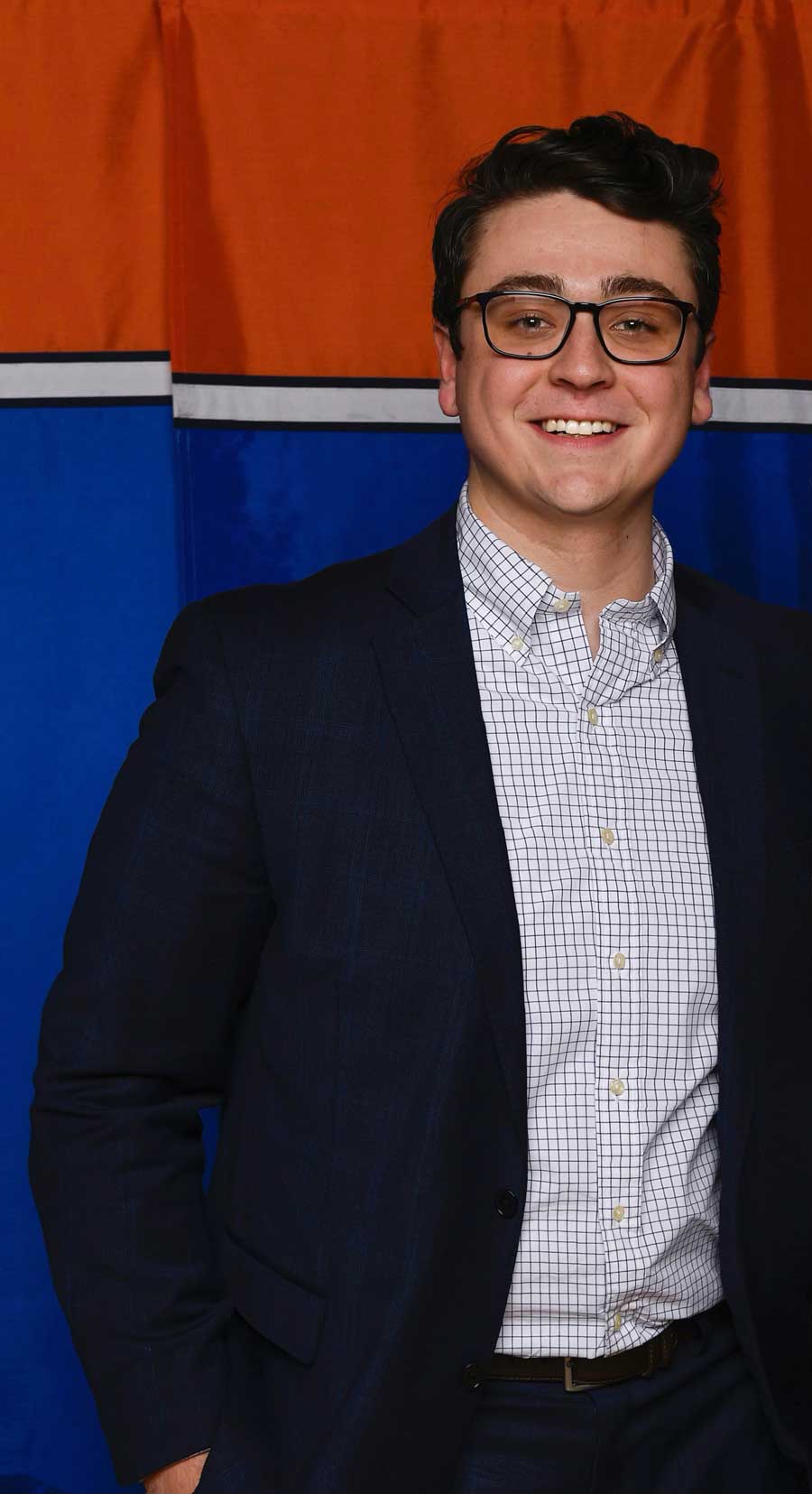
“My experiences at Gettysburg College have uniquely advanced my interest in the human condition,” Hetherington said. “My health sciences major educated me in anatomy and physiology, my neuroscience minor sculpted an interest in how we think, my liberal arts courses broadened my beliefs and the students and faculty taught me to respect others in their views.
“Frankly, I don’t see what else I would have done with my education besides get in the practice of human health.”
Forging a path forward in a crisis
Now, he uses these and other experiences he had at Gettysburg to aid his work as a frontline responder to the COVID-19 pandemic.
As an Emergency Department Technician at a Boston-area hospital, Hetherington works to triage patients and provide clinical care, so the cases he deals with day to day can vary widely.
“Every person who walks in the door represents an entirely new set of challenges,” Hetherington said. “While I am not yet in the position to make medical decisions, my participation in the healthcare system continually offer me diverse exposures and the opportunity to comfort patients on a daily basis. The range and intricacies of the human condition never cease to amaze me.”
He is currently balancing the demands of his work with applications to Physician Assistants (PA) schools. In fact, his experience as an EMT & Emergency Department Technician has only reaffirmed his future plans.
Dedicated to a path of life-long learning like many Gettysburgians before him, Hetherington is looking forward to the opportunity to be back in a classroom setting. His timeline may depend on the progression of the pandemic, but he is confident it is only a matter of time.
“I realized while I was at Gettysburg that I have so much more to learn,” Hetherington said. “I used to think of graduate school as another thing I needed to do to get where I wanted to be, but now, I see I have the opportunity to continue learning. That’s what I’m excited about the most.”
Learn more about studying health sciences at Gettysburg College.
By Kasey Varner ’14
Photos by Jason Minick, Joe Shalleck, and courtesy of Colin Hetherington ‘19
Posted: 01/04/21

